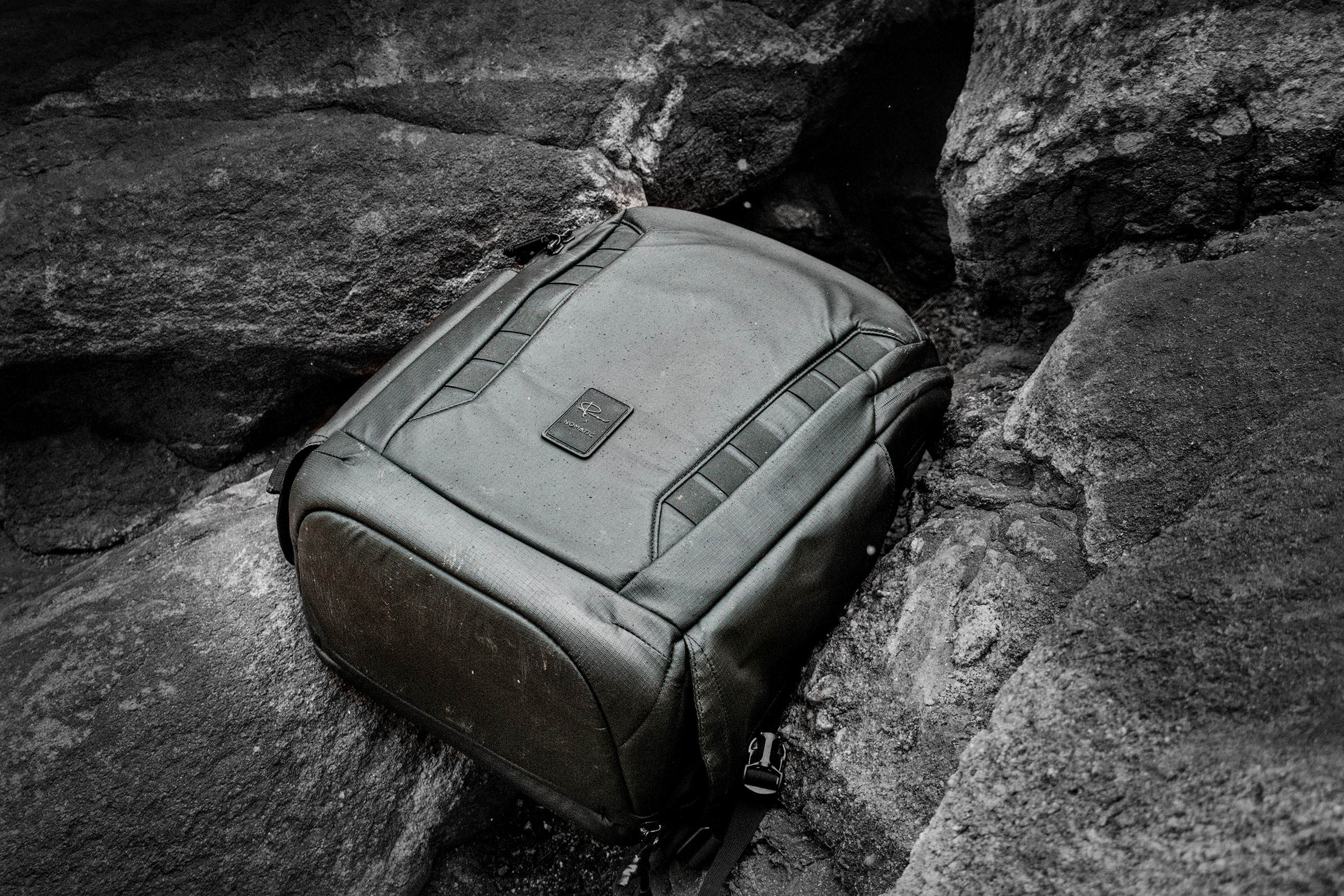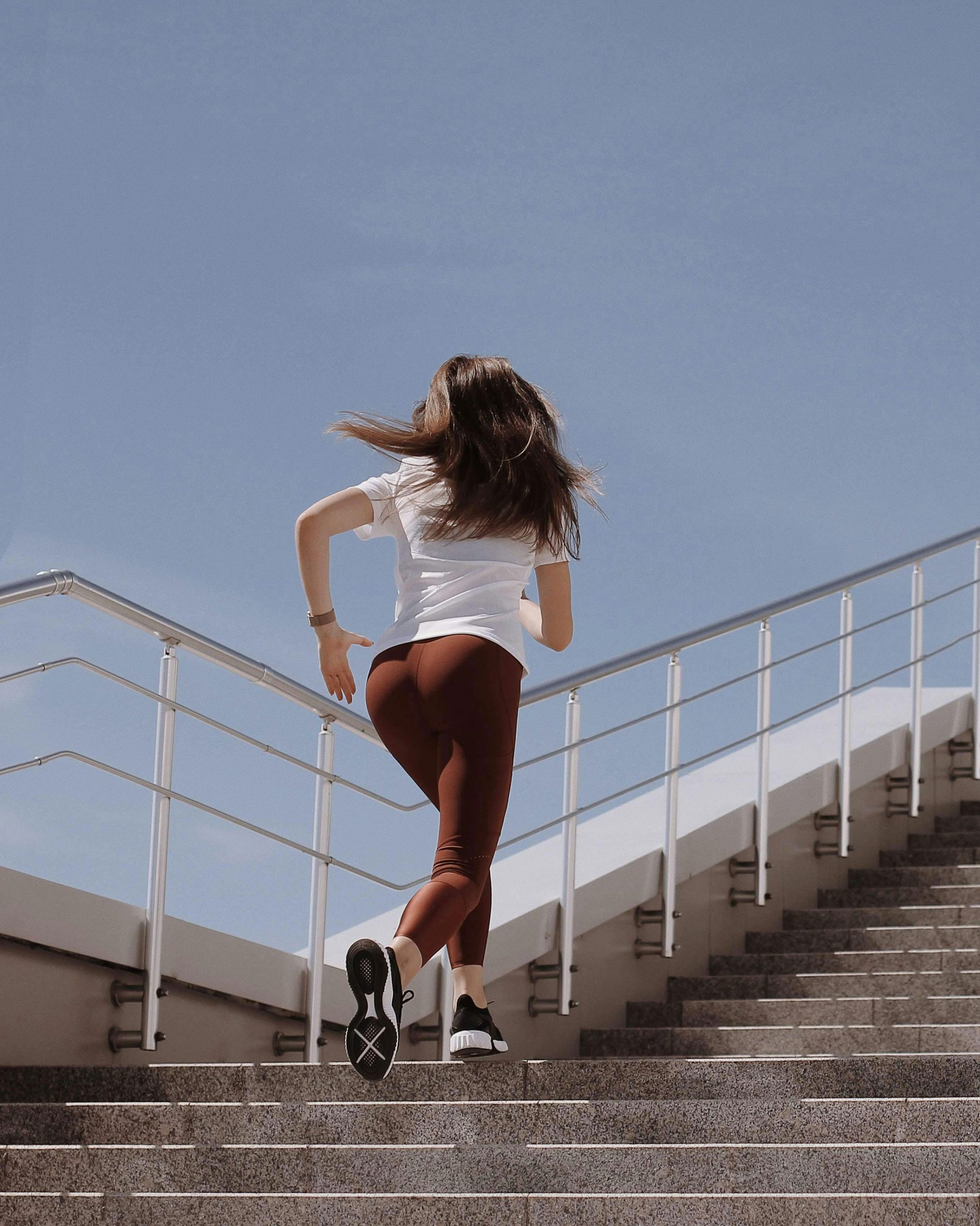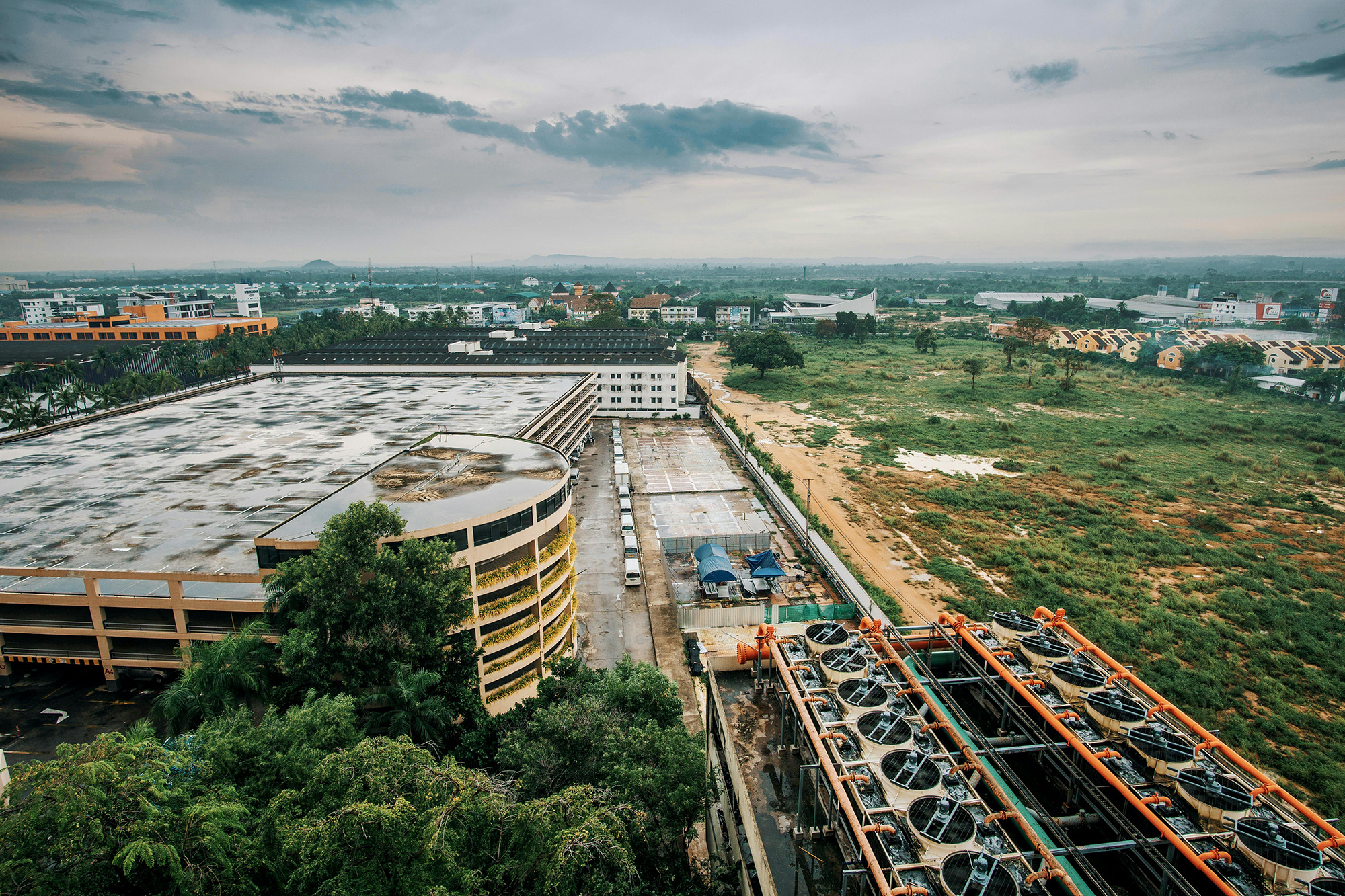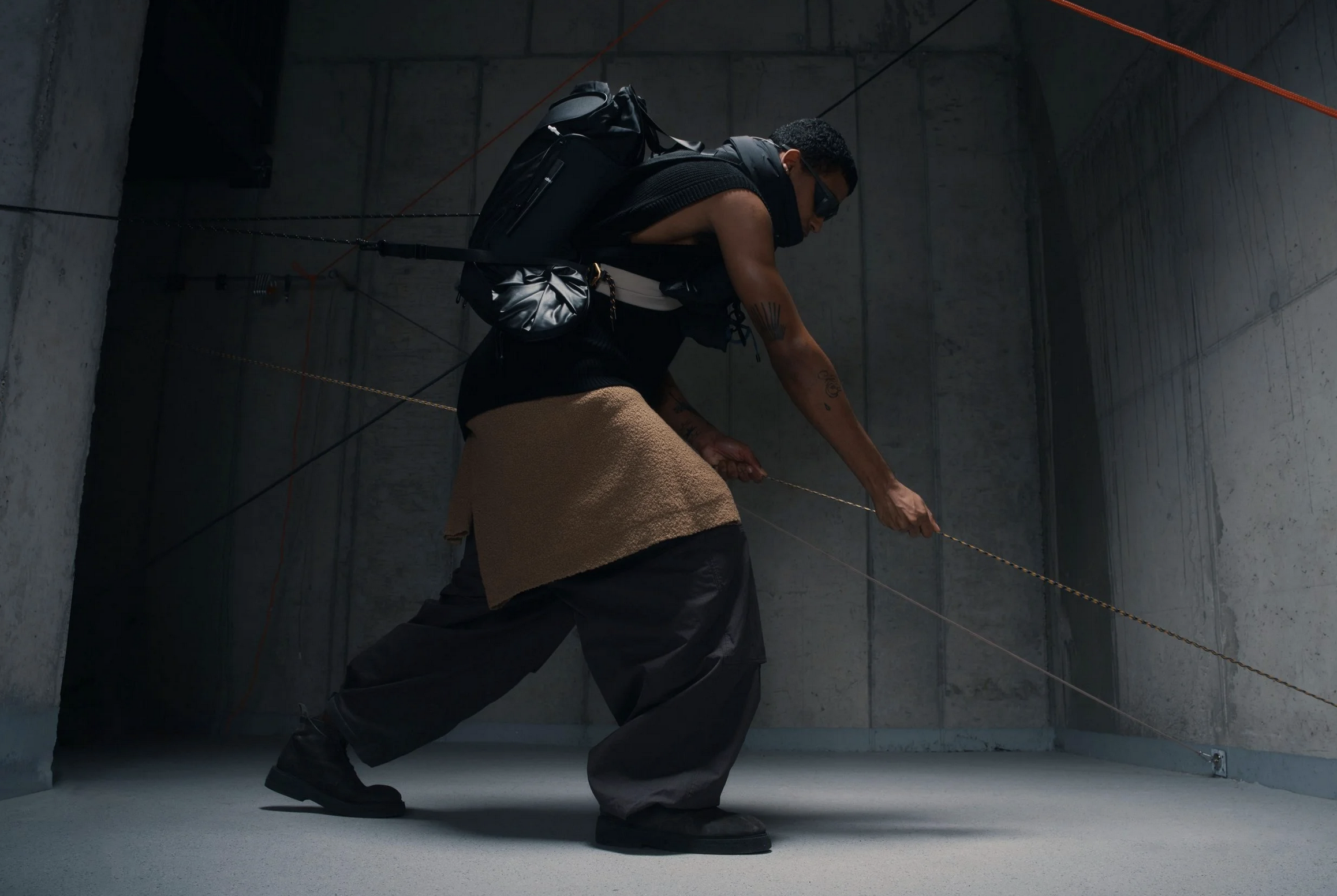Think about your dream backpack. What does it feel like? Is it smooth leather? Is it tough stitching? Does it have just the right pockets? Backpacks aren’t just for carrying stuff anymore. They’ve become a way to show off your style and how clever people can be.
Backpack design is tricky. You want something that looks good but also works well. It should be personal but appeal to many people. And it needs to be new but also hold up over time. Backpack makers all over, from Japan to the US, are figuring out how to make cool wearable art.
What Makes a Backpack Special?
More Than Just a Bag
A backpack carries your stuff, sure, but it also carries your hopes and dreams. You wear it, and it moves with you. It even ages with you.
Craft fairs in 2025 are going to be all about mixing tech with handmade art. People want products that have a story behind them. That’s what backpack art is all about, where each one tells a story of the maker and the person who uses it.
Something You Use Every Day
A backpack is different than other things you wear. It’s with you all the time. It’s on your back, holding the things you need. That means you have to think about how it feels and how it works. It’s not just design; it’s true art.
Backpacks Around the World
Japan: Always Trying to Be Perfect
Japanese bags are special. Japan is known for its design, quality, and street style. They’ve spent years trying to make things perfect, and it shows in their modern designs.
The Superior Labor: Made by Hand
Makoto Kawai started The Superior Labor in 2007. They make things like backpacks and key holders in Okayama, a city famous for its denim. Each item combines old Japanese methods with what people need today.
Check Them Out: The Superior Labor
Fredrik Packers: For Everyday Life
FREDRIK PACKERS makes bags for everyday life, whether you’re biking, walking, or whatever. Their designs are inspired by old outdoor gear. They’re stylish, work well, and are comfy.
Their Idea: A backpack should make it easier to move, not harder.
New Japanese Designs
Japanese backpacks are simple and useful. You can use them for school, travel, or anything else. Brands like AS2OV and master-piece use stuff that lasts and designs that feel good.
Brands to Look At:
America: Made with Character
Frank Clegg Leatherworks: Always in Style
These leather backpacks are from America and use the best leather. The designs are simple, so you can use them every day with any clothes. Frank Clegg makes high-quality leather goods that are made to last.
Where to Buy: Frank Clegg Leatherworks
Alaskan Leather Company: Made Just for You
You can get a leather backpack made just how you want it. You pick the leather and design. It’s a way to show off your style.
Make Your Own: Alaskan Leather Company
Backpacks from Everywhere
Ethnotek: Different Cultures Together
Ethnotek uses handmade fabrics from around the world to make backpacks and bags. Each one tells a story about where the fabric comes from.
See the Bags: Ethnotek
Unihandmade: Made by Experts
Our bags are handmade with leather by experts. They’re made in a workshop, not a factory. They last forever, and you can feel good about buying them.
Buy with a Clear Conscience: Unihandmade Backpacks
What Makes a Great Backpack?
Design: Form Follows Function
The best backpack makers know that something looks good when it works well. Everything has a purpose, both for how it looks and how it works.
How It’s Built
Straps: The straps should fit well and spread out the weight.
Pockets: The inside should be set up so things make sense and look good.
Hardware: Things like buckles and zippers should look like jewelry.
Shape: The shape should be useful and stylish.
Material
Leather: Something That Changes
Good leather gets better with age. Makers pick leather for how it looks, feels, and lasts.
Grain: The natural patterns on the leather.
Color: How the leather will look as it gets older.
Feel: How it feels to touch every day.
How Strong It Is: How well it holds its shape.
Modern Materials
Backpack makers are using new stuff that lets them be creative:
X-Pac Composites: Layers of material that make cool patterns.
Dyneema Fabrics: Super light material that makes new shapes possible.
Recycled Materials: Turning trash into art.
Little Things
The little things, like buckles and zippers, can make a big difference. They’re like jewelry for your backpack.
How It’s All Done
Sewing by Hand
Saddle Stitching
Saddle stitching makes leather strong and look good. It’s a method used for horse saddles.
Two Needles: The stitches lock together, making it stronger.
Type of Thread: Waxed thread that looks good and lasts.
How Far Apart: Even stitches look nice.
How Tight: Just the right tightness makes it strong and beautiful.
Finishing the Edges
How the edges are done shows how good the work is.
Painting: Layers of paint make the edges smooth.
Burnishing: Rubbing makes them smooth.
Beveling: Cutting small angles makes them catch the light.
Waxing: Wax protects and makes it look better.
Making the Pattern
To make a backpack, you need to know how things fit together and how they look.
How It Fits Your Body: It needs to fit well.
How the Weight Is Carried: The parts that hold weight need to be in the right place.
How It Goes Together: It needs to be put together well.
How It Looks: It needs to look balanced.
Making Sure It’s Good
Makers check to see if everything is just right:
The Stitches: Every stitch should be perfect.
The Hardware: Everything should be in the right place.
The Little Things: The little things make it great.
Looking It Over: Every piece is looked at closely.
Backpack Brands Today
JOYN: A Statement
The Artisan Backpack is made with care and looks great. It’s made with leather that’s been stitched together.
Their Bag: The Artisan Backpack – Vintage Brown
Artisan & Artist: Fancy and Useful
These backpacks are fancy and made with good materials. They’re stylish, strong, and comfy.
See the Bags: Artisan & Artist Backpacks
Etsy: Made by Individuals
Etsy lets people sell their handmade backpacks. People say things like, The bag was amazing, the leather was real, and it was just what I wanted.
Find a Special Bag: Artisan Backpacks on Etsy
How to Make It Comfortable
How Your Body Moves
Good backpack makers learn about how your body moves.
How Your Back Is
Support: It should support your back.
Weight: It should spread out the weight.
No Pressure: It shouldn’t put pressure on sensitive spots.
Posture: It should help you stand up straight.
Moving Around
Arms: It should let you move your arms.
Hips: It should put some of the weight on your hips.
Breathable: It should let air in so you don’t get too hot.
Flexible: It should move with you.
How It Hangs
The way a backpack hangs is like hidden art.
Frame: The frame gives it shape.
Padding: Padding makes it comfy.
How to Change It: You should be able to change it to fit you.
Weight on Your Body: It should put the weight in the right place.
Backpacks That Are Good for the Earth
Using Materials That Are Good for the Earth
Backpack makers are trying to be good to the Earth.
Using Recycled Stuff
Ocean Plastic: Turning trash into something useful.
Old Leather: Giving old leather new life.
Cotton: Using cotton that’s grown without chemicals.
Cork: Using cork leather which is a new plant based material.
Not Wasting Anything
Not Wasting Material: Using every bit of material.
Fixing Things: Making things that can be fixed.
Planning for the End: Thinking about recycling when designing.
Buying Local: Buying things from nearby to save on transportation.
Thinking About the Circle of Life
Backpack makers are starting to think about the whole process:
Taking It Apart: Making things that can be taken apart to be recycled.
Fixing Things: Making things that are meant to be fixed.
Knowing What’s In It: Knowing what materials are used so they can be recycled later.
Taking It Back: Some brands will take back old products to recycle them.
Learning How to Make Backpacks
Learning from the Best
You can learn by working with someone who knows how to make backpacks.
How Long It Takes:
- Year 1: Learning how to handle materials.
- Years 2-3: Learning how to make patterns.
- Years 4-5: Learning how to design.
- Years 6+: Developing your own style.
What You Can Learn Today
There are other ways to learn, too:
Learning Online
Classes:
In Person Learning
Hands-On Learning:
- Workshops where you can work with leather
- Weekend classes with expert crafters
- Demonstrations at craft fairs
Creating Your Own Workshop
To make backpacks, you need tools and a place to work.
Basic Tools ($500-1500)
Tools for Your Hands:
- Knife and cutting surface
- Tools for making stitch holes
- Needles and thread
- Tools for smoothing edges
- Measuring tools
Other Equipment:
- Sewing machine for leather(optional)
- Tools for setting hardware
- Material for making patterns
- Good work surface
Advanced Tools ($2000-5000)
Tools for Experts:
- Sewing machine for leather
- Station for painting and finishing edges
- Hardware
- Good lighting
- Storage for leather
How Much It Costs
What Makes Handmade Backpacks Worth It
Handmade backpacks cost more because they’re made differently:
Time
Mass Production: Made in minutes.
Handmade: Takes 15-50 hours.
Making the Pattern: Can take months.
Learning the Skills: Takes years.
Materials
Mass Produced: Made with the cheapest materials.
Handmade: Made with good materials that last.
Hardware: Made with good hardware that lasts longer.
Thread: Made with good threat that will last decades
Thinking About the Future
Handmade backpacks are a good investment:
How Long They Last: They can last 20-30 years.
Can Be Fixed: They can be fixed if they break.
Always in Style: They don’t go out of style.
Feeling Good: You feel good about having it.
Helping the Community
When you buy handmade backpacks, you’re helping people who make them:
Helping People: This helps craftspeople and stores.
Keeping Skills Alive: This keeps old skills alive.
Helping the Local Economy: This helps stores in your area.
Continuing Culture: This keeps traditions going.
Making It Your Own
Working Together on a Design
When you work with someone to make a backpack, it’s a team effort:
First Meeting
What You Need: Talking about what you’ll use it for.
Your Style: Talking about what you like.
What It Needs to Do: Talking about pockets and size.
How Long It Will Take: Talking about how long it will take to make.
Designing It
Drawing It: Making drawings of what it will look like.
Picking Stuff Out: Picking out leather, fabric, and hardware.
How It Will Work: Deciding about pockets and straps.
Getting Approval: Making sure everyone agrees on the design.
Making It
Staying Updated: Getting updates as it’s being made.
Making Choices: Making choices along the way.
Checking the Quality: Checking the quality as it’s being made.
Making Sure It Fits: Making sure it fits right.
Ways to Make It Your Own
Little Touches
Your Name: Putting your name on it.
Colors: Picking your favorite colors for the leather and threat.
Hardware: Picking brass, steel, or custom metal.
Inside: Picking how you want the inside to be set up.
Size: Picking the size you need.
Fancy Additions
Computer Pocket: Making a pocket for your computer.
Camera: Making a place for your camera.
Travel: Making places for your travel things.
Work: Making it work for your job.
Making It Easier: Making it easier to use if you have special needs.
Taking Care of Your Art
Leather As a Living Material
Taking care of a leather backpack is an art:
Everyday Care
Not Too Heavy: Not putting too much weight in it.
Cleaning: Cleaning it regularly.
Drying: Drying it the right way.
Storing: Storing it so it keeps its shape.
Changing Bags: Using different bags so they last longer.
Taking Care of It
Conditioning: Treating the leather to keep it soft.
Hardware: Cleaning the hardware.
Checking the Stitches: Checking the stitches to make sure they’re strong.
Getting Help: Knowing when to get help from an expert.
How It Changes Over Time
Leather gets better with age. It develops a look that tells a story.
How It Gets Old: How the leather changes over time.
Making It Look Good: Ways to make it look good as it gets older.
Its Own Story: How it becomes special because of how you use it.
Remembering the Past: Taking pictures of how it changes.
The Future of Backpack Art
Using Technology
Backpack makers are using technology in smart ways:
Smart Features Without Sacrificing Style
Charging: Built-in chargers.
Keeping Your Information Safe: Protecting your digital information.
Finding It: Helping you find your bag if it gets lost.
Locking It: Locking it with your fingerprint.
Designing with Computers
Seeing How It Will Look: Using computers to see how it will look before it’s made.
Cutting Perfectly: Cutting with lasers.
Matching Colors: Matching colors perfectly with computers.
Staying in Touch: Sharing how it’s coming along using digital ways to stay in touch.
Being Responsible
Backpack art can be good for the environment:
New Materials
Leather Made in Labs: Leather that’s made without hurting animals.
Materials Made of Mushrooms: Alternatives to leather that are made of mushrooms.
Plastic from the Ocean: Using trash from the ocean to make something new.
Things Made of Plants: Using things like cork to make new materials.
Ways of Making Things
Workshops That Use the Sun: Using solar power.
Not Using Chemicals: Getting rid of bad chemicals.
Buying Locally: Getting supplies from nearby.
Taking Things Back: Letting people send back old items to be recycled.
Starting Your Collection
Finding Your Own Style
To start a collection of backpacks, you need to know what you like and what you need:
How Your Style Grows
Start with the Basics: Buy pieces that are always in style first.
Add Something Special: Then add something unique.
For Different Uses: Have different bags for different things.
Colors That Go Together: Pick colors that look good together.
Different Sizes: Have different sizes for different things.
Your Money
Quality Is Better: It’s better to have a few good bags.
Can Be Used for Many Things: Pick things that can be used for different events.
Think About the Seasons: Pick materials that work for different weather.
For Work: Pick something that works for your job.
For fun: Pick something that’s durable
Talking to Others
The world of handmade backpacks has a community of people who make and collect them:
Finding Others
Craft Fairs: Meeting makers and seeing things in person.
Online Communities: Forums and social media groups.
Workshops: Learning with others.
Art Shows: Seeing bags on display as art.
Visiting Studios: Learning how they’re made.
Helping Others
Buying from Makers: Buying directly from the people who make them.
Sharing with Others: Sharing what you find with friends.
Social Media: Sharing what artisans do.
Hiring for Custom Work: Hiring makers to make things just for you.
Learning More: Learning about how they’re made.
How Backpacks Make Us Feel
Learning Patience
Handmade backpacks teach us to be patient:
Waiting for Excellence: Knowing that good things take time.
Enjoying the Process: Enjoying how it’s made, not just how it looks.
Knowing the Value: Knowing how much something is really worth.
Thinking Long Term: Buying things that will last for years.
How They Connect Us
Each backpack shows how creative people can be:
Someone Made It: Knowing that someone made it.
Culture: Understanding how it’s made.
Appreciating the Materials: Knowing good materials.
Smart Designing: Seeing how problems are solved.
Living a Good Life
Handmade backpacks show us how to live well:
Quality That Lasts: Picking things that last.
Fixing Things: Fixing things instead of throwing them away.
Thinking About Buying: Making good choices about what we buy.
Helping Others: Making choices that help others.
Ending
Backpacks combine doing something useful with being creative. In a world where things are made quickly and thrown away, handmade backpacks teach us important things: to be patient, to be skilled, to value quality, and to enjoy making things.
When you carry a backpack, you’re carrying something made with skill and care. Each time you wear it, you add to the story. Each trip you take adds to how it looks. And you feel more connected to the person who made it.
Whether you like simple Japanese designs, tough American leather, or new designs that are good for the Earth, there’s a backpack that’s part of your story. Buying handmade means you’re buying into a world where things are made with care and where people are valued.
Your perfect backpack is waiting for you or waiting to be made. Backpacks show us that the things we use can be beautiful and that the things we carry can tell about us.
By picking handmade backpacks, we choose to carry art through life and we become part of the story of human skill.
ArtOfBackpacks #ArtisanMade #HandcraftedBackpacks #LeatherCraftsmanship #SustainableFashion #SlowFashion #MadeToLast #JapaneseDesign #AmericanMade #CustomBackpack #FunctionalArt #CraftTradition #QualityGoods #HeritageDesign #BackpackArt #LuxuryCraftsmanship #HandstitchedLeather #EthicalFashion #MasterCrafted #ArtisanLife #TraditionalCrafts #ModernArtisan #BackpackDesign #CraftedWithCare #TimelessDesign



